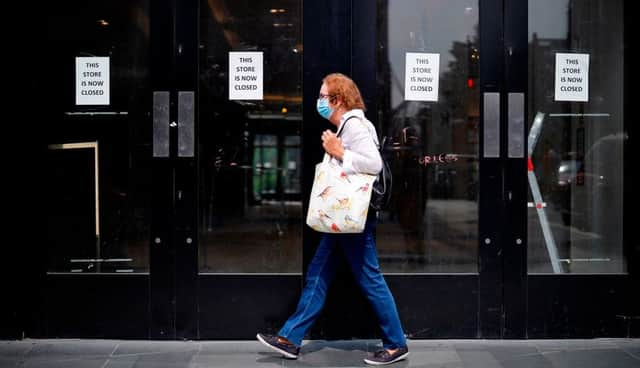Here’s what happened during the UK’s last recession - and how long experts think this one will last


The UK has officially entered a recession for the first time in 11 years, after the coronavirus pandemic caused the economy to shrink by 20 per cent.
The Office for National Statistics (ONS) confirmed the UK’s nosedive into recession on 12 August. It is the deepest recession since records began.
Advertisement
Advertisement
Experts have warned that the country faces a long road to recovery, despite an 8.7 per cent recuperation in gross domestic product (GDP). The sobering second quarter figures showed the UK suffered the biggest economic hit from the pandemic in western Europe, even beating Spain’s 18.5 per cent drop.
What is a recession?
A recession is defined as two successive quarters of decline in GDP.
Recessions can result in higher levels of unemployment, lower wages and incomes, increased inequality and more government borrowing.
What happened during the last recession?
The last recession in UK history took place from the second quarter of 2008 to the second quarter of 2009, with the UK GDP declining by six per cent. This was known as the Great Recession. It wasn’t until 2013 that the UK economy recovered to its size pre-recession.
Advertisement
Advertisement
The Great Recession was caused by the late 2000s financial crisis, the subprime mortgage crisis, and a credit crunch - the sudden tightening of restrictions to borrowing. During this period, unemployment in the UK rose by 857,000.
Over the past decade, the UK has recorded low earnings growth, record low interest rates, record low productivity growth, record public borrowing followed by record cuts in public spending, all as a result of the Great Recession.
What are experts saying about the pandemic recession?
Experts have warned that hopes of a rapid, v-shaped recovery are unlikely. The Bank of England said that the UK economy would not jump back to pre-virus levels until the end of 2021.
Many have also been quick to point out that the UK has performed significantly worse than its European peers.
Advertisement
Advertisement
Samuel Tombs at Pantheon Macroeconomics said, “The UK economy has underperformed its peers to an extraordinary degree.
“The underperformance can be attributed partly to the economy’s greater reliance on consumer services spending and the high level of labour market participation by working parents, many of whom have left work to look after children.”
Melissa Davies, chief economist at Redburn warned that economic recovery will not be a quick process.
She said, “There is a long road ahead for the UK economy to claw back its pandemic losses, all the while facing deflationary headwinds from large amounts of spare capacity and job losses.
“As the furlough scheme rolls off, more stimulus will be needed to support household incomes, not least if infection numbers rise in the autumn.”